Discovering Hungarian Wines and Tasting Experiences in Budapest
If you love wine, Budapest is an amazing place to start exploring Hungarian wines. The city doesn't make wine itself, but it's the perfect spot to try wines from all over Hungary. We've found some incredible wine bars hidden in old cellars and fancy tasting rooms where experts teach you about local wines that have been around for hundreds of years.
What's really cool is that you can taste wines from all 22 Hungarian wine regions without leaving Budapest. The wine scene here shows how Hungary went from ancient winemaking traditions through some tough times to today's incredible quality wines. We always tell people that Budapest is like a wine playground where you can learn about Hungarian wines that most people have never heard of.
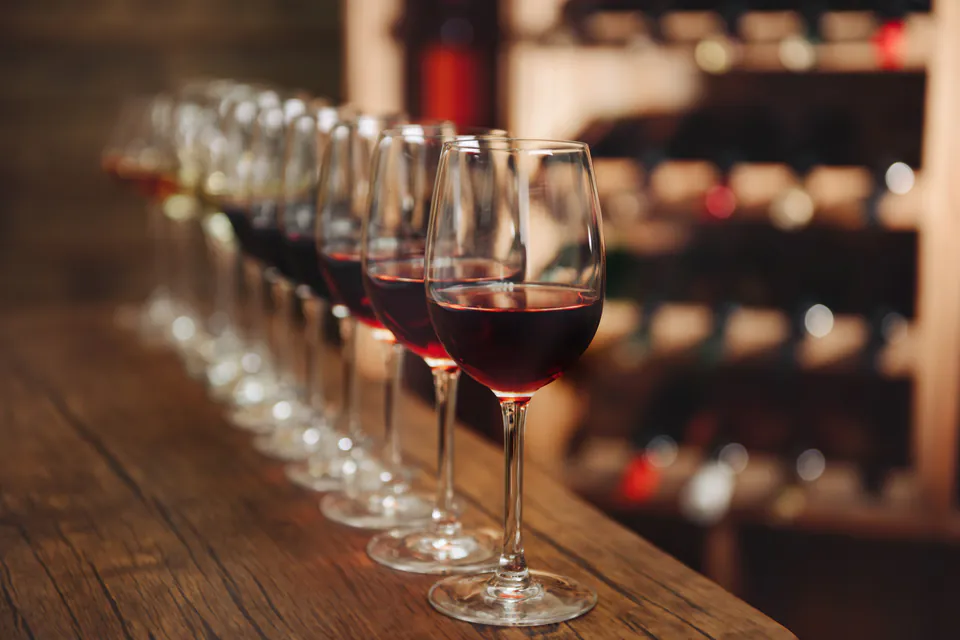
Hungary's Wine Story
Hungary has been making wine for over 1,000 years. The country used to be really famous in European wine circles. What makes Hungarian wines special is the mix of different soil types, local grape varieties that grow nowhere else, and the continental climate. When we visit Budapest wine places, they're really proud to show off this history. You get everything from the famous sweet Tokaji to big bold reds from Villány.
The big comeback started in the 1990s. Winemakers went back to old methods but also used modern techniques. This created wines that keep surprising international wine critics. We've noticed that Budapest's wine bars act like ambassadors for this quality revolution. They carefully pick wines that show the best of what Hungarian winemakers can do.
Hungary's Best Wine Areas
When you understand Hungary's main wine regions, tasting in Budapest becomes much more interesting. Each area has its own personality because of the soil, weather, and how they make wine.
Hungarian Wine Regions and Specialties
| Region | Known For | Key Varietals |
|---|---|---|
| Tokaj | Sweet Tokaji Aszú, Dry Whites | Furmint, Hárslevelű, Yellow Muscat |
| Eger | Egri Bikavér (Bull's Blood), Whites | Kékfrankos, Kadarka, Leányka |
| Villány | Full-Bodied Reds | Cabernet Franc, Merlot, Kékfrankos |
| Badacsony | Volcanic Whites | Olaszrizling, Szürkebarát, Kéknyelű |
| Szekszárd | Structured Reds | Kékfrankos, Cabernet Sauvignon, Kadarka |
| Balaton | Diverse Whites and Reds | Olaszrizling, Chardonnay, Zweigelt |
Tokaj is Hungary's crown jewel. This is where they make the world-famous Tokaji Aszú dessert wine. The area has special weather conditions along two rivers that create perfect conditions for a fungus called noble rot. But they also make incredible dry white wines, especially from Furmint grapes. We've tasted some that have this amazing mineral taste and can age for years.
Eger is famous for Egri Bikavér, which means "Bull's Blood." It's a blend that mixes local grapes like Kékfrankos and Kadarka with international ones. The cooler weather and different soils here make wines with great structure and really unique character.
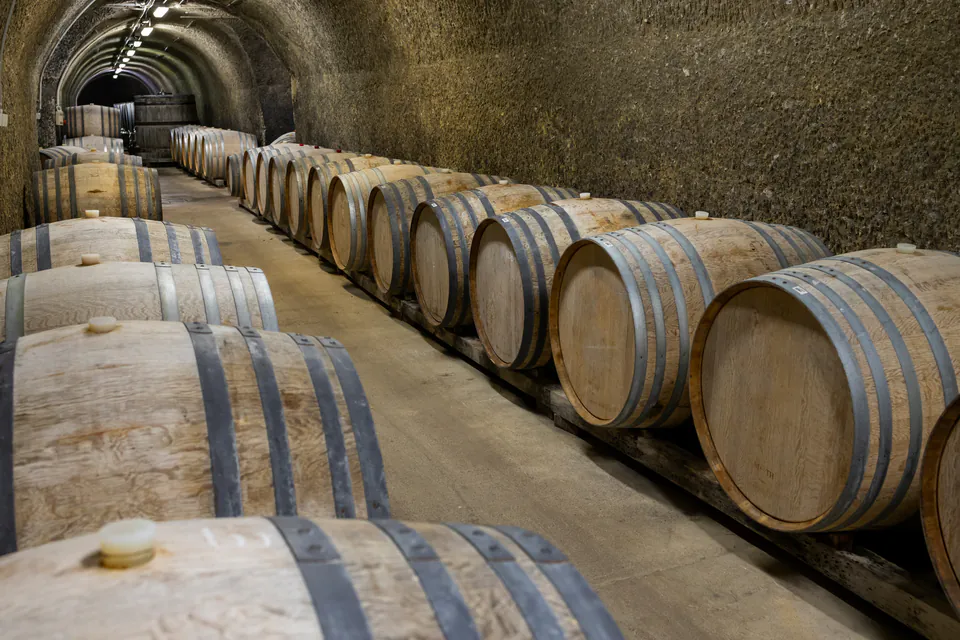
Hungarian Grapes You Need to Know
Hungarian wines get their unique taste from both local grapes that grow only here and international grapes that winemakers have gotten really good at growing. Knowing these grapes makes tasting so much better.
Furmint is Hungary's star white grape. Most people know it from Tokaj, but it's planted other places too. This grape can make bone-dry wines with sharp acidity or super sweet dessert wines. When we tried dry Furmint for the first time, we were amazed by the citrus and mineral flavors. These wines can age for decades.
Kékfrankos is Hungary's most important red grape. It makes medium-bodied wines with bright acidity and spicy red fruit flavors. In Austria they call it Blaufränkisch. This grape is the backbone of many Hungarian red blends and makes excellent wines on its own.
Hárslevelű adds aromatic complexity to Tokaj blends and also makes wines by itself with honey and floral characteristics. The name means "linden leaf" because of how the leaves look.
Kadarka used to be everywhere in Hungarian red wine but almost disappeared during communist times. Now it's making a comeback. We've tried some newer Kadarka wines and they're elegant and spicy with moderate tannins.
Best Wine Bars and Tasting Places
Budapest has tons of different wine places. Whether you want casual exploration or serious wine education, there's something for everyone.
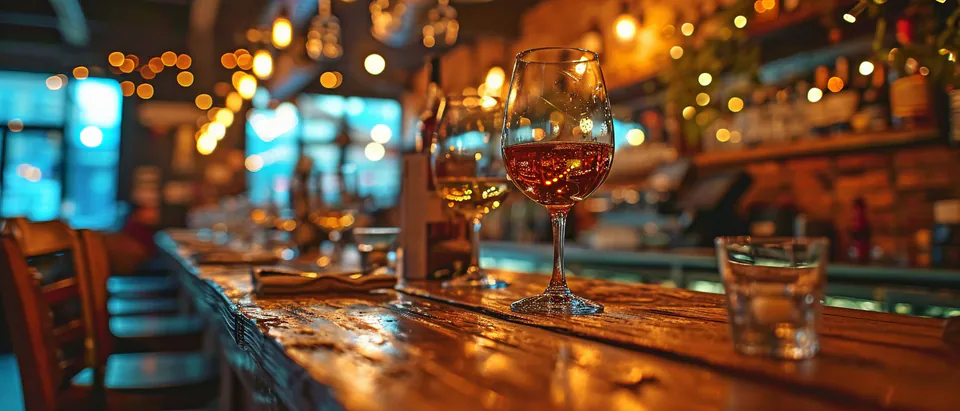
Doblo Wine Bar in the Jewish Quarter focuses on smaller Hungarian producers. We love how it changes from a quiet afternoon spot to a lively evening place with live jazz and gypsy jazz. The staff really knows their stuff and helps you understand Hungarian wine. Prices are pretty reasonable too.
Taste Hungary's Tasting Table has structured educational experiences led by professional sommeliers. It's in a historic building in the Palace District. They do different daily tastings like "Wine, Cheese & Charcuterie" and "Essentials of Hungarian Wine." They also have a wine shop next door with carefully chosen Hungarian wines.
Bortodoor does comprehensive 90-minute guided tastings in a cozy downtown spot. You sample eight Hungarian wines including sparkling, white, red, and dessert wines, plus artisanal charcuterie boards. The sommeliers are experts but keep things relaxed.
Faust Wine Cellar is really unique because it's in the underground caves under Buda Castle. This atmospheric place does guided tastings with tons of Hungarian wine options. They have different packages with seven wines, snacks, and professional sommelier guidance.
Wine Tasting Experiences and Tours
Budapest has lots of guided wine experiences for different interests and time schedules.
Structured Tastings are great educational introductions to Hungarian wine culture. Usually you sample 7-8 carefully chosen wines from different regions. Knowledgeable sommeliers share insights about terroir, winemaking techniques, and food pairings. Many include artisanal cheese and charcuterie pairings.
Wine and Dine Cruises combine sightseeing with wine tasting along the Danube River. You get unique views of Budapest's lit-up cityscape while sampling Hungarian wines. Some cruises have live music or traditional folklore performances. We did one last year and it was really memorable.
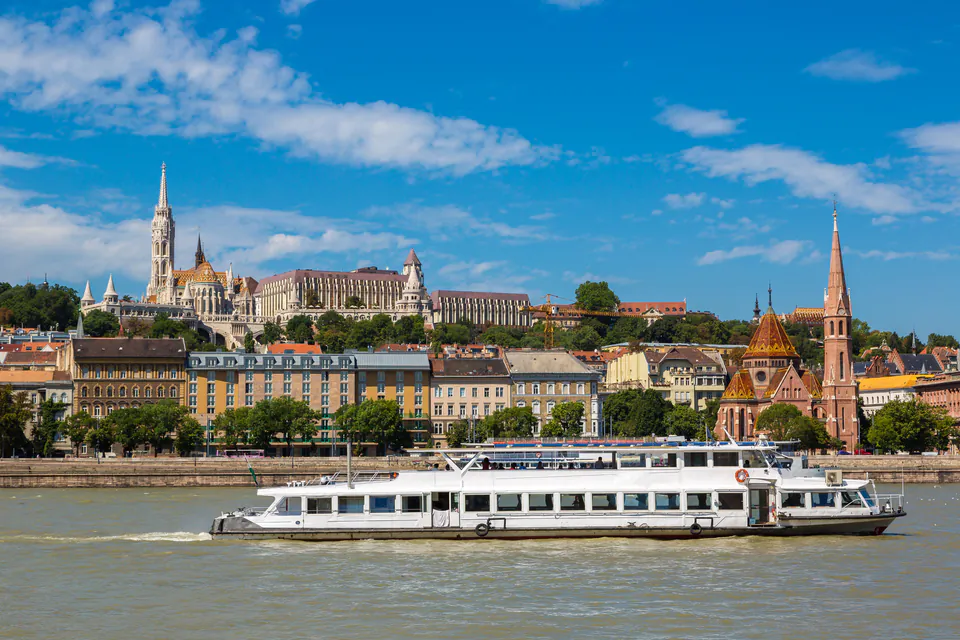
Etyek Wine Tours go beyond the city to the nearby Etyek-Buda wine region, just 30 minutes from Budapest. These trips usually include visits to family-owned cellars, vineyard tours, and tastings of the region's notable white and sparkling wines. Often they include traditional Hungarian meals too.
Wine Shopping and Retail
Budapest's wine shops go way beyond just selling wine. They have tasting opportunities and expert advice for wine lovers who want to take Hungarian wines home.
Bortársaság is one of Hungary's biggest wine distributors with multiple Budapest locations. Their main outlet in Batthyány utca has huge selections. They partner with Klassz Bistro to offer tasting opportunities of their curated wines.
Borháló has a network of wine shops throughout Budapest, including centrally located stores on Grand Boulevard. They're known for friendly, expert service and competitive prices. They frequently host tastings and wine-related events.
Tasting Table Wine Shop goes with their tasting cellar with carefully curated Hungarian wines, spirits, and cheese selections. They have weekly pours where you can sample different wines and discover new favorites before buying.
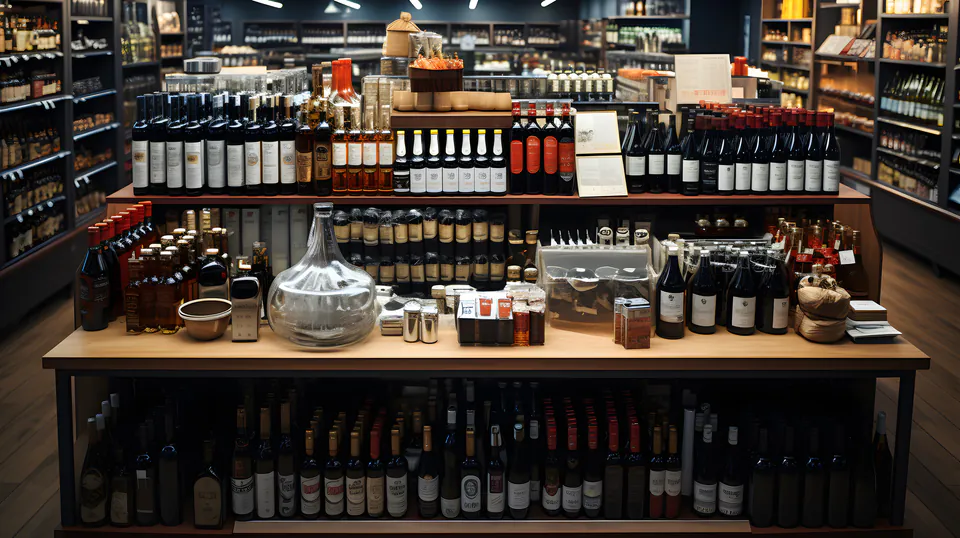
Restaurants with Great Hungarian Wine Lists
Many Budapest restaurants are really proud of their thoughtfully chosen Hungarian wine selections that go perfectly with local food.
Borbíróság Restaurant lives up to its "Court of Wine" name with almost 100 Hungarian wines available by the glass. It's near Váci Street and has a homey atmosphere for enjoying excellent wines with traditional Hungarian dishes.
Babel Budapest shows off Hungary's growing reputation in white and sparkling wines through their exclusive Hungarian wine pairing menu. This Michelin-starred restaurant demonstrates how Hungarian wines work with innovative cuisine under expert sommelier guidance.
SALT Budapest Restaurant has a "White Star" designation from Star Wine List, which means they have an exceptional wine list. Their Restaurant Manager & Head Sommelier makes sure there are perfect pairings between Hungarian wines and refined cuisine.
Pairing Hungarian wines with local food creates amazing combinations. Classic pairings include robust Egri Bikavér with hearty goulash, luscious Tokaji Aszú with rich desserts or foie gras, and crisp Furmint with fresh fish dishes.
Wine Festivals and Events
Budapest's wine calendar has vibrant festivals and events throughout the year. These give you immersive opportunities to explore Hungarian wine culture.
Budapest Wine Festival in September at Buda Castle is the year's biggest wine celebration. This huge event attracts thousands of visitors eager to discover Hungary's finest wines. Hundreds of wineries from across the country participate. Beyond extensive tastings, the festival includes cultural experiences like live performances, art exhibitions, and traditional crafts.
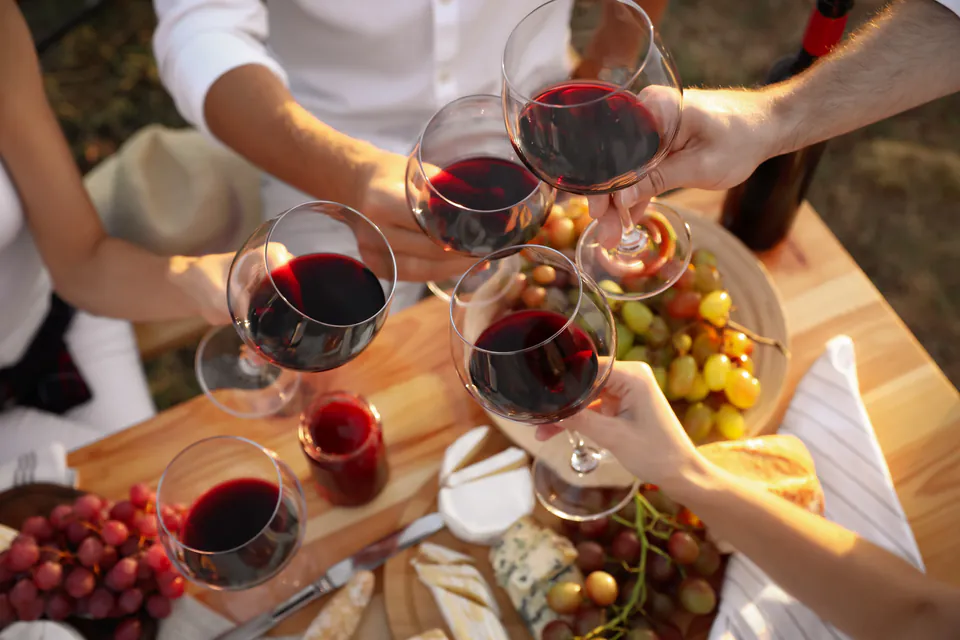
St. Martin Wine Festival in November celebrates new wines from the recent harvest. You get opportunities to taste the latest vintages from Hungarian winemakers. This timing lets you be among the first to sample fresh releases.
Rosalia Wine Picnic usually happens in May or June and has relaxed, open-air wine tasting in festive settings. These events give you casual opportunities to sample various wines while enjoying Budapest's pleasant spring and early summer weather.
Practical Wine Tasting Tips
Getting the most out of your Budapest wine experience requires some practical considerations and local knowledge.
Seasonal Timing makes a big difference for wine experiences. Autumn, especially September, coincides with harvest season and the prestigious Budapest Wine Festival. Summer has perfect weather for evening wine cruises and outdoor events. Winter gives you cozy indoor tasting experiences.
Basic Hungarian Wine Vocabulary helps when you interact with local wine professionals. Key terms include "bor" (wine), "vörös" (red), "fehér" (white), "száraz" (dry), "édes" (sweet), and "egészségére" (cheers). Learning these simple words shows respect for local culture.
Booking Strategies vary by venue type. Casual wine bars usually welcome walk-ins, though reservations help guarantee tables during busy times. Structured tastings, wine cruises, and special events require advance booking, especially during tourist season.
Transportation Considerations are important when wine tasting. Budapest's excellent public transportation system makes traveling between venues safe and convenient. Many wine experiences include transportation, especially day trips to wine regions.
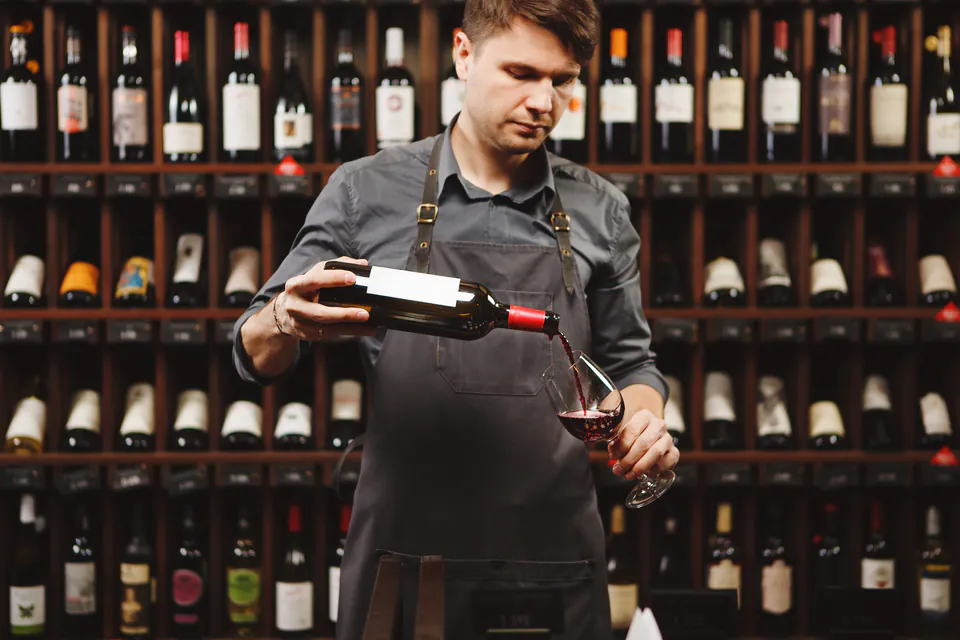
New Trends and Modern Developments
Budapest's wine scene keeps evolving with exciting new trends and developments that make visitor experiences even better.
Natural Wine Movement gains momentum among younger Hungarian winemakers. Several Budapest venues specialize in organic and biodynamic wines. These places attract environmentally conscious travelers seeking sustainable wine options.
Innovative Tasting Formats include technology-enhanced experiences and self-guided tastings using tablets and smart cards. While some pioneering venues have closed, their innovative spirit influences new establishments adopting creative approaches to wine education.
Focus on Indigenous Varieties gets stronger as Hungarian winemakers and Budapest venues emphasize unique local grapes like Furmint, Kékfrankos, and revived varieties like Kadarka. This trend gives visitors truly distinctive tasting experiences you can't get anywhere else.